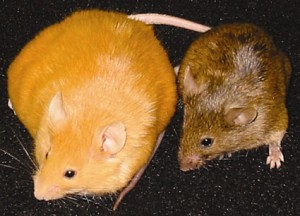 Yesterday night at the International Congress on Human Genetics we had a debate, entitled “Current and Emerging Sequencing Technologies: Changing the Practice of Medical Genetics”. You can see the full list of participants here.
Yesterday night at the International Congress on Human Genetics we had a debate, entitled “Current and Emerging Sequencing Technologies: Changing the Practice of Medical Genetics”. You can see the full list of participants here.
The debate was pretty lively, and in parts both enlivening and depressing. Below are a few points that I found interesting.
As always, you can find more coverage of ICHG on twitter (@lukejostins for me, #ICHG2011 for aggregated coverage).
Different perspectives
Joris Veltman described his exome sequencing of 500 individuals with intractable disease, and noted that there has been much success, and very little evidence of harm. Ségolène Aymé mentioned NIH targts that hope to see almost all genetic diseases diagnosed by 2020, and new treatments for rare diseases to be developed simultaneously. There seemed to be a solid consensus across the panel that sequencing should be rolled out as a standard tool in the diagnosis of genetic diseases, provided that the approach is a targeted one, restricted to finding the pathogenic mutation(s) causing the disease.
More controversial was the role of sequencing of healthy individuals, and the general return of data to patients or doctors for any reason other than directly diagnosing a genetic disease. Rade Drmanac, chief scientific officer of Complete Genomics, was obviously strongly in favour of everyone having their genome sequenced, and made it clear that Complete Genomics intends to start offering sequencing to doctors in the future. In his vision, genomes are sequenced at birth, and an initial analysis of immediately actionable results (e.g. potential genetic diseases) is passed to the doctor and patient, with further analyses being carried out if and when they are required.
Michael Hayden immediately dismissed this as hype. He pointed out how unable the US is to handle medical sequencing, with no good systems of reimbursement, a massive shortage of genetic councilors, and a general lack of training in the medical profession.While more positive in general, Louanne Hudgins also expressed worries about the lack of knowledge of genetics among doctors, with some truly scary examples of MDs failing to understanding even the most basic genetics.
Continue reading →
 The International Congress of Human Genetics is rapidly approaching its conclusion (namely, my talk today at 3.15pm in Room 517, be there or be, I dunno, hanging out in Montreal I guess).
The International Congress of Human Genetics is rapidly approaching its conclusion (namely, my talk today at 3.15pm in Room 517, be there or be, I dunno, hanging out in Montreal I guess). 
 Yesterday night at the International Congress on Human Genetics we had a debate, entitled “Current and Emerging Sequencing Technologies: Changing the Practice of Medical Genetics”. You can see the full list of participants
Yesterday night at the International Congress on Human Genetics we had a debate, entitled “Current and Emerging Sequencing Technologies: Changing the Practice of Medical Genetics”. You can see the full list of participants 